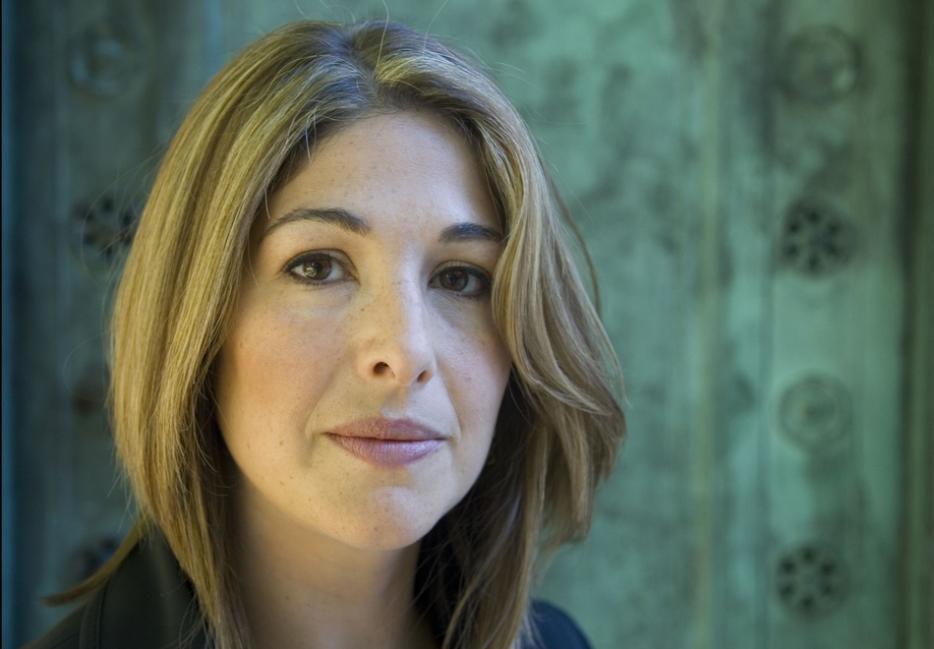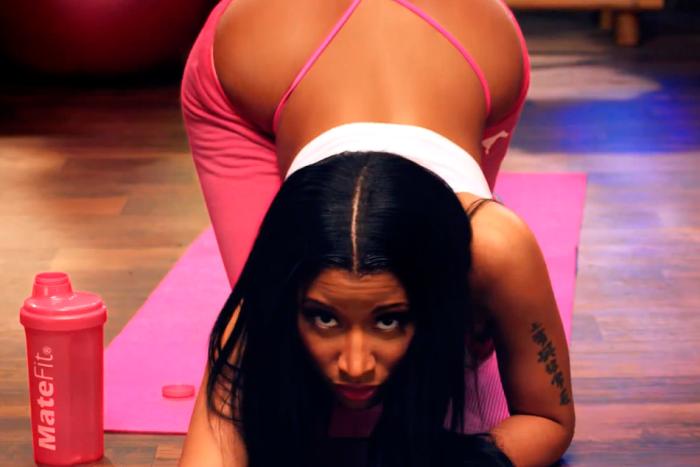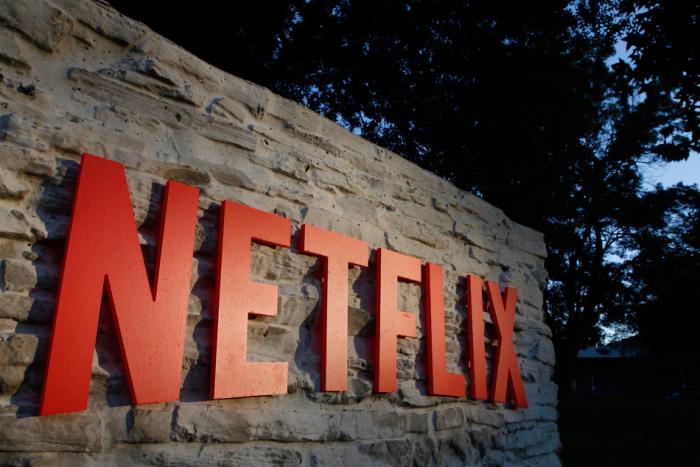On Tuesday, over 120 high-ranking officials, in addition to many CEOs, NGO reps, climate scientists, and economists, will convene in New York for the United Nations Secretary-General’s daylong Climate Summit—the largest gathering of world leaders to discuss climate change since 2009’s Copenhagen Summit. Yesterday in New York, organizers of the People’s Climate March achieved a superlative of their own: the largest march in history in support of environmental causes.
The scene at the Summit—the politicians convening with major polluters inside, and the demonstrators outside—plays out the central tension of Naomi Klein’s new book, This Changes Everything. The book builds on her previous takedowns of free-market orthodoxy to detail how the climate crisis is a consequence of deregulation and ever-intensifying corporate influence. But it also points to a solution, as she describes the remarkable surge of grassroots environmental movements who are defending local lands, challenging corporations and governments, and innovating clean energy solutions. These activists have noticed how the lack of clean air and water are connected to dwindling access to jobs, food, and basic social and political rights. Ultimately, Klein suggests, the climate crisis may serve as a wake-up call: if getting off fossil fuels means getting off capitalism, then maybe it’s for the best.
On the eve of the book’s launch, I spoke to Klein at the Hazlitt offices about how we got to this very polluted place in history, and if-slash-how we can find our way back.
The title of your book is This Changes Everything, which I first assumed referred to climate change—the ravaging of the environment by corporate polluters you detail in the first half of your book. By the end, though, I was convinced that the word “This” referred to the new environmental movement, which is very much grassroots, and producing real change. The title signaled either crisis or optimism, depending on where I was in the book. Do you see this as a cautionary or optimistic book?
The “This” in This Changes Everything refers to climate change. The fact is, if we stay on this road, climate change changes everything about our physical world. The flip side of that is to get off that road—because we’ve let the problem go so long—we need to really swerve to get our emissions down in time to stay within the global carbon budget. In order to do that, our whole economy needs to change. And our engagement with politics needs to change radically, because fossil fuel companies are really big and powerful, and the only thing that can stand up to them is a tremendously mobilized population.
That is something that makes me really optimistic, because I’ve seen this mobilization begin, and I think the alternative to fossil fuels are so much more preferable. And it can be a catalyst for positive economic and social transformation on so many levels. I find that hopeful, and I see hopeful signs.
This Changes Everything fits nicely with No Logo because it's also a story about branding. You discuss how the mainstream environmental movement, typified by “Big Green” groups like the Environmental Defense Fund in the US, shifted to accommodate a free-market agenda in the Reagan 1980s, and how disastrous this strategy was for the climate. Can you speak a bit about how mainstream environmentalism rebranded itself to fit with late consumer capitalism?
The 1980s was definitely a turning point. One of the arguments in the book is that what has stood in our way, what explains this failure to act on the scientific consensus despite the increasingly frantic warnings we’re receiving, is the catastrophically bad timing of this crisis. The scientists were saying, “this is absolutely going to happen, we need to act” in 1988. If you picked a worst year to tell policymakers about a problem they need to act collectively on, with strong, top-down regulation, 1988 would be it. Because the next year, the Berlin Wall collapses, Francis Fukuyama declares history over—it was the most triumphant moment for what in my earlier books I’ve called market fundamentalism.
So all of the ways that the environmental movement used to deal with problems—regulation, banning—were suddenly out. Those methods were called command-and-control environmentalism. There was a kind of McCarthyism in the way in which environmentalists at the end of the Cold War came to be seen as the new communists. And so, that was the discourse in 1980s Reagan America, and these Big Green groups faced a choice. So do we stick to our beliefs and say that this model you’re adopting [deregulation] is going to lead to environmental catastrophe, and lose access to power? Or do we change our beliefs and get with the program? So there was this rebranding. I wouldn’t blame it on the rebranding itself, but rather, it’s the triumph of this ideology and how these groups had their extreme 1980s makeover.
There was a kind of McCarthyism in the way in which environmentalists at the end of the Cold War came to be seen as the new communists. And so, that was the discourse in 1980s Reagan America, and these Big Green groups faced a choice.
This was a political strategic decision to stay on the inside. So you have a guy like Fred Krupp, the head of the Environmental Defense Fund (EDF). In the 1980s, he was a young upstart, now he’s a senior most environmentalist in the US. At the beginning, he was like the Alex P. Keaton of the environment. He wrote an article in the Wall Street Journal saying “there’s a new breed of environmentalist taking the reins of any large group, and we don’t believe in adversarial relationships with business, we believe in partnerships.” And that was a real turning point. EDF was originally inspired by Rachel Carson [who wrote] Silent Spring, and their first victories led to the banning of DDT. And their motto was “sue the bastards”: they had an adversarial relationship with polluters. They knew who their enemies were. And along comes Fred Krupp saying, “no, we want to go into business with the bastards. We want to show them that it’s better for their bottom line to do something about climate change.”
Which it wasn’t.
Well it was, in some incremental ways. Like yeah, McDonald’s could save money by switching from styrofoam to cardboard, which it did with EDF’s help. Does that mean McDonald’s is making a net benefit to the environment? Look at the big picture. You can convince Walmart that they can save money if they introduce energy efficiency throughout their business—which they’ve done—but at the same time, Walmart has expanded at such a rapid clip that despite the fact that they are more efficient, their emissions are way up overall, because they are expanding. Not to mention the impact on sprawl and agriculture and so forth. And they’ve taken these incremental wins and concluded that therefore we can do the whole transformation by the enlightened self-interest of business leaders.
This way of thinking still dominates. The UN is still touting this partnership-based model. I got a press release yesterday from the UN saying that they have the CEOs of Cargill and Bank of America participating in this summit, and that this is what is going to create ambitious climate action. And I think that the difference is, not that that model of environmentalism is over, because it’s alive and well and it’s still the dominant paradigm in institutions of power like the UN or within government, but now there’s a grassroots movement in the streets that’s saying, “actually, no. We know that we are not going to get the level of change we need without a conflict with polluters.” And that’s how you get the fossil fuel divestment movement, with hundreds and hundreds of college campuses calling for their universities to sell their investments in fossil fuel companies. They’re not trying to change the companies. They want to do the fossil fuel companies what was done to the tobacco companies, which is turn them into political pariahs, and shift the resources of public interest in institutions like colleges and universities and cities and religious institutions into the technologies that we need for the new economy.
So I think that that’s the real shift. That rebranded corporate-partnership based environmentalism is no longer the only game in town. They never entirely were. You always had groups like Greenpeace and Friends of the Earth that always had a more confrontational relationship with fossil fuel companies. But the thing is, those groups, particularly Greenpeace, were always a little more stunt-based than building a grassroots movement. So someone would do an amazingly daring banner drop… things like that. And it’s great, they’d get a lot of press. But that’s different than mobilizing the communities that are most impacted by climate change. That’s why I’m really excited about this march. I think it’s the first time that there has been a mass action about climate change that is going to be really grassroots. It’s the neighbourhoods that were most impacted by Hurricane Sandy that need to be rebuilt, it’s going to be people coming in from farming communities who are trying to fend off fracking on their land, people for whom this is not just an “issue”—it’s about water and health and homes.
Unlike other justice movements—feminism or civil rights, for example—environmentalism has a strong elitist reputation. In fact, when I think of environmentalism, I don’t even think about the earth, I think about, say, Gwyneth Paltrow growing her own organic vegetables and then there’s a 6-page Vogue spread about it. I think that in the public eye, environmentalism has become less about climate action and more about a very specific pattern of consumption and self-presentation for wealthy people.
But as you argue, climate change has the most devastating impacts on poor people, especially indigenous communities, and so the elitist tinge to the environmental movement is particularly sad. Why was environmentalism perverted into an elitist movement while other justice movements weren’t?
I think some justice movements have been as well, but maybe not as thoroughly as the environmental movement. I think it all comes down to this strategic decision of if you can’t beat em, join em, in the 1980s. And it has to do with the particular history of the environmental movement, which is not like other justice movements.
Environmentalism did not start as an outsider movement, like civil rights or the labour movement, though there could be parallels with the suffragettes, which were mainly elite women. [Environmentalism] in North America started off as an old boys club—literally, the Sierra Club was an actual club of gentlemen who loved wilderness, and were hiking or hunting enthusiasts. These were wealthy men of power and influence who enjoyed their time in the outdoors and saw that the industrial project, that they themselves were a part of and profitting from, was threatening some of their most beloved places and species. They existed to sort of soften the edges of that project.
Some of the biggest national parks were created because John Muir, who is one of the founders of the Sierra Club, went camping with President Theodore Roosevelt under the stars, and the two men were like, “we need to save this place.” What other movement could you point to that had that inside access to presidents? So that’s the roots of the movement. Even in the 1960s, the environmental movement was still very close to power. The first Earth Day was started by a US senator. And it was seen by the more radical parts of the counterculture as a distraction from issues like war.
Very quickly, you had the environmentalism of the 1960s and 70s, when there was this slew of laws written, and the environmental movement became this movement of lobbyists. While there were always more radical pieces of the movement—in Canada there was more because of Greenpeace originating in Canada—it was always an elite movement. So when the elite changed, and said, “we have zero tolerance for any kind of regulation,” that’s where there was this moment where the movement had to decide, what’s more important: access, or actually protecting the environment?
And so I think that many of the failed environmental policies responding to climate change are about the same thing, they’re about an attempt to take a crisis which really requires that we challenge our system of endless and mindless consumption and instead make it fit within it. So we’re not going to regulate, we’re going to have carbon markets. Because that fits within that mindset. And we aren’t going to regulate the food industry, we’re not going to impact the kind of choices people have. We’re going to tell people they need to make better choices. And conveniently enough that means people will shop more. So these groups turned a response to climate change into a series of individual shopping decisions. One of those decisions could be buying offsets. Another could be buying more expensive green products. I think that the real shift will happen not when green groups realize they need to move beyond these Band-Aid solutions. It’s going to be when people who are not engaged on climate change but are engaged on other economic or social justice issues, any of these much more grassroots movements, really become engaged on climate, because they understand how we’re all directly impacted.
In Canada the risks of actually going after fossil fuel companies are very clear, because in Canada you’ve got Greenpeace, which has been at the forefront of the fight against the tar sands, and working with indigenous groups who have been most directly impacted, for many years. And they’re not just dropping banners and doing stunts—they really are a thorn in the side of industry and government and have really been part of building a grassroots resistance to the tar sands. Look at the way the government goes after Greenpeace, and how seriously they take them as a threat: they associate them with terrorists. So if you actually go after power, there are costs.
Your central claim is that climate action is incompatible with free-market capitalism. Not only because, even in a sea of green options, it will always be cheapest and most profitable for corporations to pollute, but because the philosophy of take-take-take that undergirds capitalism, which you call extractivism, is the same that encourages us to treat the earth as an exploitable resource. Reversing climate change isn’t possible without shifting this underlying way of thinking, which dates back to the Industrial Revolution.
Do you really think we can accomplish this vast change in attitudes? How do we accomplish this?
All I know is that there’s more receptivity to deep change than at any time I remember. I hear really radical things coming from places I never would have expected. I was on a conference call about the climate march, and there was a pastor from a New York church on the call, and she was just going so far, about precisely this: how what climate change tells us is that we need a non-instrumentalist approach to life, to nature and one another. It can’t be about using each other and what we can get from one another.
The essence of climate change is not some issue, it’s a message. It’s telling us something about this way of seeing the world, this way of relating by dominance, which is not human nature—yes, it’s since the Industrial Revolution, but in the history of humanity that’s in the blink of the eye. And more people are talking about this need for deep change and charting a way forward and speaking with tremendous courage and boldness and truth than in any time that I can remember.
I think staying hopeful about that slim possibility of change is a choice about how you want to live your life and whether you want to be in despair or not. And then the extension of that is that hope is contagious. Including false hope. And despair. And so sending a message that you believe that change is possible, putting that out there, emboldens more people to believe that as well. A virtuous cycle sets in. The opposite is also true: if you put out the message that we’re all screwed, then that also spreads.
I don’t think we have really the luxury of making some cold calculation about whether or not we are completely screwed. I think we make a decision about who we want to be, what values we want to express, and just try as hard as we can.
There’s a companion documentary to the book, can you tell us what the movie will be like?
The film, as the book is, is about the political structures that are standing in the way of action, as well as the resistance movements. Originally we were hoping the film would come out at the same time as the book, but my husband Avi is still working on it. We’re hoping it will come out in January.
What I love about the film is that it’s just this symphony of voices from the movements themselves. It’s not a film of talking head experts; it’s overwhelmingly the people who are on the frontlines of the extractive industries, and also the resistance to them and building the alternatives, who really are the experts. Like Crystal Lameman of Beaver Lake Cree First Nation. In the book, I describe going up to their territory and learning about their lawsuit against the Canadian Government. I’m not a good enough writer to do enough justice to the amazing force of nature that is Crystal! So being able to bring viewers to her home and her community and to see her in action, and to see her addressing thousands of people at the climate march in Washington and follow her on her journey is great.
[People like her] are my teachers in this, and I’m just really excited to have this companion piece where those voices are going to be speaking for themselves, and they’re going to be saying a lot more than I had space for in the book and speaking so compellingly.






